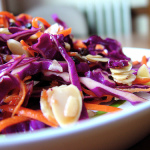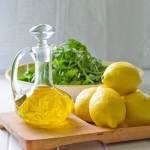Advice for Fighting a Fatty Liver
Fatty liver disease is a very common affliction in modern society. For quite some years now it has been considered the most common hepatic sickness. Living with fatty liver is something very complicated and painful, and it can cause exhaustion, swelling, and abdominal bloating…Therefore it is important to learn to treat it in order to reach a better quality of life, where a proper diet and a little bit of exercise are without a doubt the first basic steps towards improvement and the means by which you can hopefully eventually achieve that your liver return to its former, healthy state.

Contents
Causes of fatty liver
As of yet there are no clear factors that can precisely determine what causes the phenomenon of fatty liver, but experts generally attribute it to a wide variety of causes among which stand the following:
- Metabolic problems.
- Oxidative stress.
- Obesity.
- Nutritional problems.
- Diabetes.
- Excessive consumption of sugars or fats.
- The presence of toxins in the body.
- Association with other conditions, such as hepatitis or intestinal inflammation…
Nutrition for fighting fatty liver
The diet you need to control fatty liver is pretty basic – it essentially amounts to controlling calorie intake in order to avoid the swelling, heavy feeling during digestion, and chronic fatigue associated with this condition. So the first question you need to ask is What should I eat?
- Fiber: Indispensable. Fiber gives you the sensation of being full and controls your appetite, also absorbing fewer fats and sugars.
- Whole wheat bread, rice, and pasta.
- Oatmeal or corn for breakfast, without added sugar.
- Include legumes three times a week in your diet, and all green leafy vegetables.
- Avoid sugar. As a sweetener we recommend instead stevia, perhaps the only adequate substitute as neither sucrose nor fructose are good for a fatty liver. You should also avoid heavy daily consumption of fruit as fruit contains high levels of sugar.
- Avoid cow’s milk: low-fat yogurt and kefir should always be preferred.
- Increase the Vitamins A, C, and E and selenium levels in your diet – these are good for helping you to avoid cellular degeneration and are commonly found in the following foods: blue fish, egg yolks, tomatoes, broccoli, peppers, nuts, spinach, avocado…
- As for selenium, a powerful antioxidant and liver detoxifier, you can find it in pistachios, cashew nuts, pumpkin seeds, mushrooms, and wheat germ…
- Alcohol is unfortunately something you will have to completely eliminate from your diet.
- Lemon is, without a doubt, an indispensable piece in the fatty liver puzzle. It is extremely beneficial, so you should add it to your drinking water and your salads – it is extremely delicious with carrots.
Plants that are your friends for fighting fatty liver disease
- Silybium marianum, or milk thistle: this plant is enormously effective at cleansing and strengthening the liver. It helps to reconstruct it and acts as an antioxidant, promoting the growth of new cells and digesting fats. You can find it in capsule form at vitamin shops.
- Noni juice: Noni juice contains a very high concentration of fiber and not only reduces cholesterol but helps liver reconstruction. You can consume two capsules between meals. You can also find this one in vitamin or specialty shops.
- Spirulina: This algae detoxifies and rehabilitates the liver. It has high magnesium and Vitamin B6 content, both ideal for combating fatty liver disease, and contributes plenty of vitamins to your diet.
Other advice
- It is always best not to abuse medications, especially anti-inflammatories and analgesics.
- What if you make it a daily habit to go for a walk? Exercise is a key part of weight loss and bringing equilibrium to your system. You can do it progressively, starting with half an hour a day, in order to slowly integrate exercise as a habit into your life.



